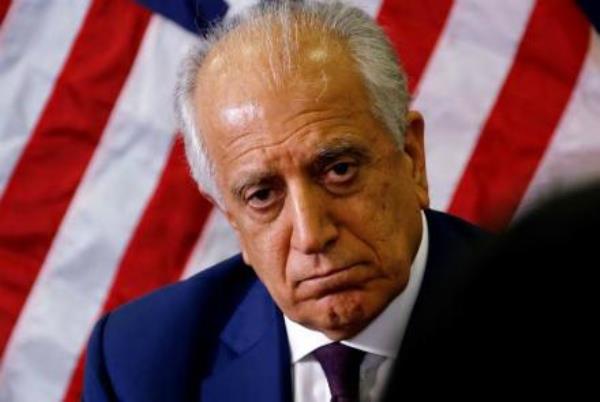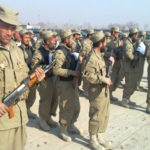US Special Representative for Afghanistan Reconciliation Zalmay Khalilzad has again called on Afghan political leaders and the Taliban to agree on a peaceful settlement of the conflict in the country and avoid repeating “past mistakes.”
Khalilzad held talks with the negotiating team of the Taliban in Doha on Thursday after he arrived there almost three weeks following the inauguration ceremony of Afghanistan’s peace negotiations.
”The fact that the Afghans are sitting across the table for the first time in 42 years is a moment of hope and opportunity,” Khalilzad said as quoted in an interview by NPR.
Both Afghanistan and the US must avoid mistakes of the 1990s, Khalilzad said as quoted by NPR.
The start of direct peace negotiations in Doha between teams from Afghanistan and the Taliban has faced multiple delays over their disagreement on two articles of the procedural rules for the talks.
The Taliban demand recognition of the US-Taliban agreement as the ‘mother deal’ underlying the Afghan peace negotiations, and Hanafi jurisprudence as the sole religious legal guidelines for the talks.
“There is a huge difference in the views between the two sides, therefore gaps and delays are common during the talks,” said Mohammad Rasul Talib, a member of the republic’s negotiating team.
Reports say that the republic’s team has suggested alternatives to the Taliban’s demands.
The republic’s team has proposed that if a religious issue arises it can be solved based on Hanafi jurisprudence by default, however, the Shia Personal Status Law must be respected, and the choice of religious jurisprudence should be given to other minority groups as well.
Regarding the US-Taliban agreement, the republic’s team recommended four options:
First option: The terms of the US-Taliban agreement could be accepted as underlying the talks, however, the terms of the joint declaration between the Islamic Republic of Afghanistan, NATO and the US should also be accepted as applicable.
Second option: Neither the US-Taliban agreement nor the declarations of the Islamic Republic of Afghanistan with the US and NATO will be recognized as having any authority, and the negotiations will move forward based on the decisions of the consultative Loya Jirga and the Jirga’s declarations.
Third option: Both sides start talks “based on the national interest of Afghanistan.”
Fourth option: The Quran and Hadith are the main authority for the talks, replacing all others.
The Taliban insist that talking about the Jafari jurisprudence under current circumstances is not logical but said that this can be discussed during the talks about the Constitution of the country.













